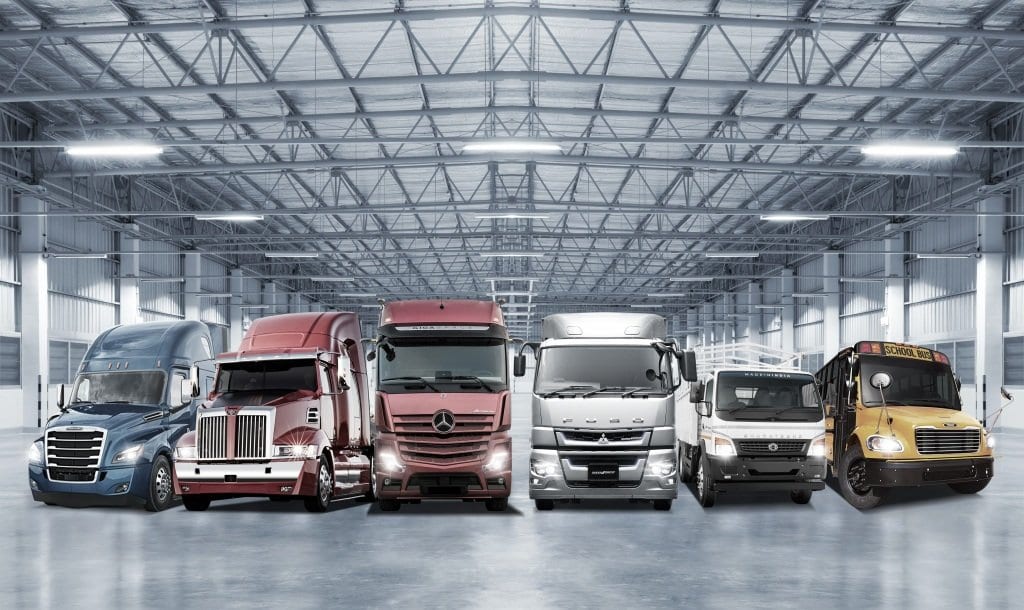Just months after an EU mandate that will have emissions for cars and vans drop by 37.5% and 31%, respectively, by 2030, a new provisional agreement will look to cut truck emissions.
The European Union has been pushing forward legislation to help it become “climate neutral” by the year 2050. One such legislation was the one that was passed in December 2018 that will cut emissions from cars by 37.5% and vans by 31% by 2030 compared with 2021 emissions. Additionally there is an interim goal of a 15% cut in both car and van emissions by 2025.
Now the European Union has set its sights on truck emissions. According to a report from the Environmental and Energy Study Institute,” Medium and heavy-duty vehicles, powered by diesel fuel, represent only 5 percent of the vehicles on the road but currently account for more than 20 percent of transportation emissions,”.
According to the proposal, “Lorries, buses and coaches produce around a quarter of CO2 emissions from road transport in the EU and around 6% of the EU’s total CO2 emissions.”. So clearly the issue is prevalent regardless of continent.
With the last emissions legislation still fresh in the mind of lawmakers, the one to cut truck emissions looks very similar. The agreement sees to that new truck emissions shall be cut 30% by 2030 based on the 2019 emission levels. Additionally there will be an option to revise the target in 2022, and like the previous legislation, there is a 15% emission target by 2025.
Commissioner for Climate Action and Energy, Miguel Arias Cañete, had said the following about the agreement:
“With the first-ever EU emission standards for trucks agreed, we are completing the legal framework to reach the European target of cutting greenhouse gas emissions by at least 40% by 2030. The European Parliament and Council have reached an ambitious and balanced agreement. The new targets and incentives will help tackle emissions, as well as bring fuel savings to transport operators and cleaner air for all Europeans. For the EU industry, this is an opportunity to embrace innovation towards zero-emission mobility and further strengthen its global leadership in clean vehicles.”
With this type of agreement in place, it will no doubt force automakers to create electric commercial trucks, whether they want to or not. This as you can imagine, has brought some criticism from the European Automobile Manufacturers’ Association.
ACEA Secretary General, Erik Jonnaert, had said the following:
“The introduction of a benchmark system for truck manufacturers totally ignores the demand side. We cannot expect transport operators to suddenly start buying electric or other alternatively-powered trucks if there is no business case for them and it is not possible to easily charge the vehicles along all major EU motorways. Policy makers must act to ensure that the zero-emission trucks that manufacturers will be mandated to produce can actually be bought and operated by our customers.”
The legislation to cut car and van emissions was met with a similar criticism from automakers. And while I can sympathize with the fact that automakers are being forced to make drastic changes, these drastic changes are necessary after so much car, van, and truck emissions have gone unchecked for so long.
Currently the policy is a provisional agreement, but there does not seem to be much that will stop it from being passed.
What do you guys think of the policy? Let us know down in the comments below!
Source: European Commission
